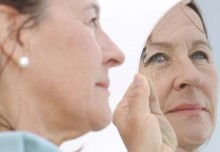
People really can get “under your skin” almost literally. See how your relationships affect your health and your brain.
Interpersonal neurobiology is a term you may want to know more about. It refers to the way in which our daily lives and experiences are constantly changing our brain.
There was an interesting article I read about interpersonal neurobiology in the New York Times by Diane Ackerman. I want to discuss what it means to you. I think back to a song by Cole porter “I’ve got you under my skin.” You know how that is. Sometimes, a person gets under your skin and it really irritates you. Sometimes, somebody gets under your skin; you just want him (or her) close to you.
That’s exactly what happens. It’s been shown that even from birth when moms and kids bond together, there’s a fusion; a wordless communication; an actual imprinted closeness that happens. It’s so powerful that while it doesn’t change genes, it does change the way genes express themselves. Relationships impact us so strongly that a good and positive relationship can increase your longevity, your health, your happiness and even your wisdom. It affects the way your brain works.
In brain scans of people who were madly in love, love lit up the same part of the brain as cocaine
On the other hand, when things go wrong or awry, every culture in the world whether it’s Russian or Chinese or American all describe it the same way – crushing, pain, broken heart – all of this is because closeness when it’s separated is painful; and closeness if it’s positive is very good for your health.
In one study that looked at brain scans of people who were madly in love, the researchers found that
love lit up the same part of the brain as cocaine. The difference – cocaine users also have a lot of fear and anxiety; but people who have close relationships with really good interactions actually have less anxiety and less fear and lower blood pressure. All of this is due to the people we associate with.
Here is what I think this means for you. There is an evolving science called interpersonal neurobiology that proves our relationships affect our brains, our happiness and our health. It’s very important to try and pick relationships that make you feel good, positive and strong; that have a good effect on you and make you happy you’re in that relationship. And bad relationships? If there is any way possible to avoid them, that’s exactly what you should do.
So I encourage you choose your friends and partners carefully. Choose only the ones that get under your skin in a really positive way.





